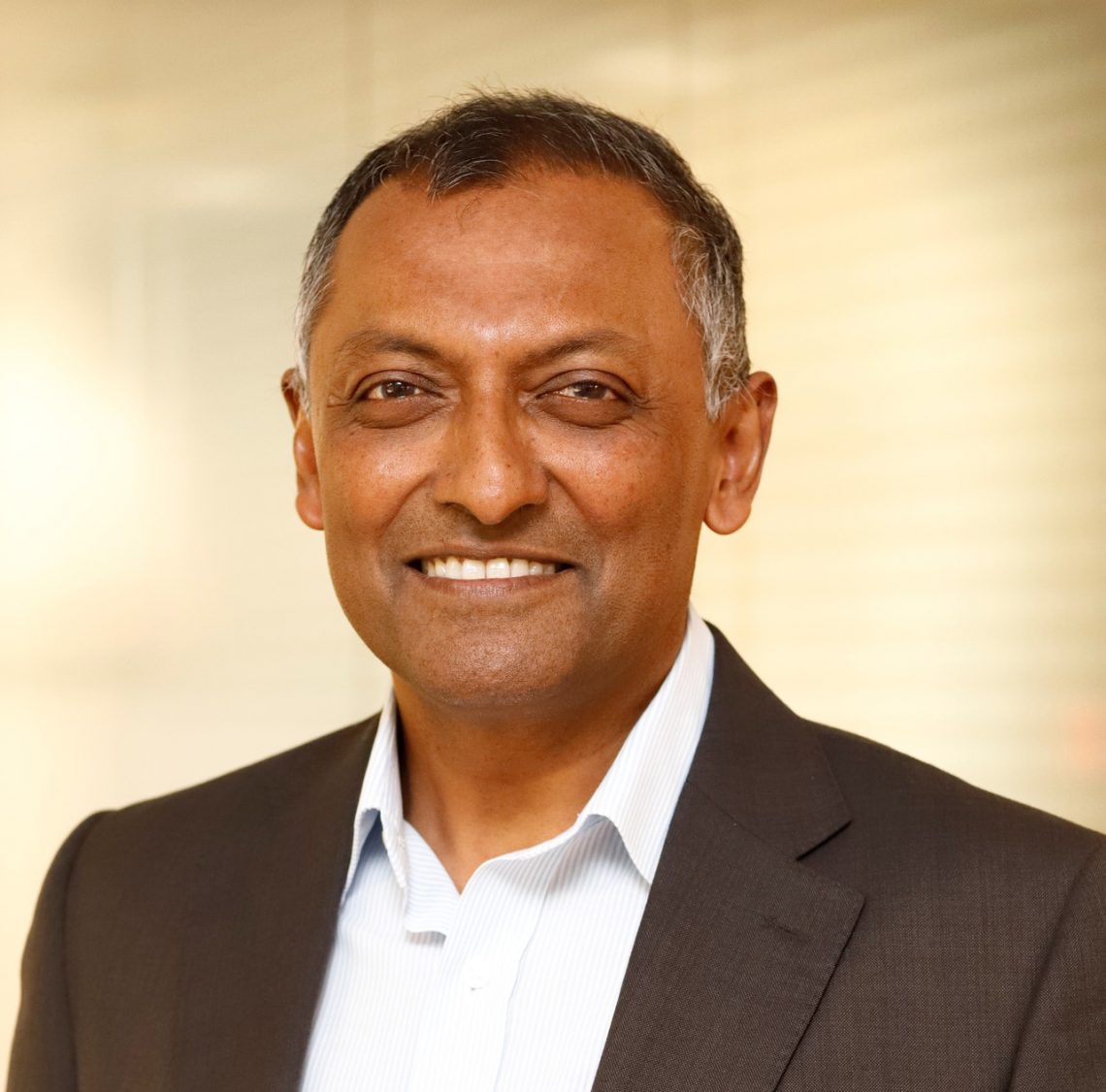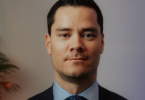Ron Khan is R&D Vice President of Beverages Packaging at PepsiCo, the multinational food, snack, and beverage corporation, leading the full packaging program for beverages across innovation, productivity, sustainability, and long-term research. He joined PepsiCo in April 2018, and is based in PepsiCo’s global R&D center for beverages, in Valhalla, New York. Khan has 31 years experience in packaging design and development in the consumer package goods industry. Prior to joining PepsiCo, he spent 21 years at Unilever in various senior R&D packaging roles across both the foods and beverages and home and personal care categories. During his Unilever career, Khan lived and worked in the UK, Germany, China, and Italy. Before Unilever, he worked for GlaxoSmithKline, Tesco, Estee Lauder and for Bestfoods, which was subsequently acquired by Unilever in 2001.
Born in London, Khan grew up in Trinidad, where he received a first class honors degree in Pure & Applied Physics, at the University of the West Indies. He moved back to the U.K. to complete a masters’ degree in polymer technology at Loughborough University. His masters’ project on PET [polyethylene terephthalate] soft drink bottles led to his initial and continuing interest in packaging. Khan recently spoke to The Innovator about how companies can structure new types of collaborations to help achieve their sustainability goals.
Q: The company recently launched a strategy called pep+ (PepsiCo Positive). What is that all about?
RK: pep+ is about the transformation of our company through the further integration of sustainability into the way the business operates. It includes how we manufacture products, the livelihoods of the people who work to get us our products, and the choices we offer to consumers. It is holistic and end-to-end. Some of the key priority areas include packaging, regenerative agriculture, sustainable sourcing, water use, carbon emissions and the supply chains handling the portfolios of products we offer. We have been making big changes over the last few years, but this is much more transformative. Sustainability is now at the very core of our business.
Q: In a previous interview with The Innovator, you said that no single organization or industry can solve the plastic waste challenge on their own. Can you describe how PepsiCo is working with other companies?
RK: One way we are approaching this challenge is by looking at best practices and how we can disseminate those best practices across a wider industry. For example there is a project we are involved with in the U.S. that promotes consumer recycling called ‘Every Bottle Back.’ It includes PepsiCo plus Dr. Pepper and Coca-Cola and is managed through the American Beverage Association.
Secondly, we are setting collective standards and specifications. A good example of this is rPET [recycled polyethylene terephthalate]. We have set up a working group with Coca-Cola, Danone, and Nestlé to ensure that during the recycling process of food grade PET a good standard of quality is maintained, and the right materials go back in the bottle.
In addition, we are pooling our investments with other companies to scale new approaches. There is so much we can do if we get together with others, especially when you are looking at making big systemic changes. One example of this is Circulate Capital, a fund set up to prevent ocean plastics in Southeast Asia. Many places in that region lack the right infrastructure for recycling. PepsiCo is one of the founding investors together with other companies to pool money to finance waste collecting initiatives. Pooling this money together in a partnership really makes a difference. In 2020 the fund invested around $20 million into four companies in India that are developing technology around waste management and recycling.
The last approach is to combine R &D efforts. It took over 40 years to optimize PET bottles. If you are looking at new and breakthrough technologies, it makes sense to pool efforts as any new packaging technology will take a huge amount of capital to bring to market.
Q: Can you give some specific examples of PepsiCo pooling R &D with other companies?
RK: One example is our partnership with Carbios, a French startup. Carbios’ enzymatic technology promises to allow infinite recycling of all types of PET waste, which can then be used in the production of new 100% recycled PET products- without loss of quality. These new products are 100% recyclable. The technology is already scaling up thanks to an agreement with PepsiCo, L’Oréal, Nestlé Waters and Suntory Beverage & Food Europe to fund part of the research and development and validate the materials it makes across a wide range of products, giving it a much more successful chance to get to market.
Another area of pooling R&D involves the use of biomaterials. Pep+’s new targets include a 50% reduction in the amount of virgin fossil fuel used per serving. One way to meet this target is to use more recycled materials, another way is to use materials that don’t come from fossil fuels, such as renewable biomaterials. To make equivalent bottles from biomaterial is going to take a big effort, so PepsiCo, along with Nestlé and Danone, are part of the NaturALL Bottle Alliance to see how we can help develop that technology and its use in the entire supply chain. Using biomaterials in bottles requires the replacement of two different molecules. Origin Materials, a partner of the NaturALL Bottle Alliance, have figured out how to replace one of them. They need to commercialize their piece and the larger companies need to work on the second molecule to bring it together. None of us can do this ourselves.
A third example involves Pulpex, an R&D collaboration between Diageo [makers of Johnnie Walker, Smirnoff and Guinness] and Pilot Lite, a venture management company, which is developing a novel technology to use paper pulp to make bottles. The paper cartons that are traditionally used for juices and milk are made with pulp combined with complex materials and are therefore difficult to recycle. If we can find a way to make bottles out of recyclable paper that would be a huge breakthrough. To that end, PepsiCo has joined a consortium of consumer goods companies to help bring the Pulpex technology to market.
Q: It is difficult for large companies to work with startups, and it is unusual for large companies to pool R&D efforts on commercial products. What are the challenges and how are you overcoming them?
RK: The challenges we have with plastic and climate change require a system-wide approach. A lot of the time we work one to one with big packaging vendors to try and find a solution. We continue to do that, but we need to find some breakthrough opportunities and it is often smaller companies that develop them. Collaborating with them requires a different way of working. Smaller companies have a different mindset, they are entrepreneurial and faster, but they often don’t have the infrastructure and don’t know how to do the end-to-end supply chain so there is a lot we can do to help support them in these areas.
Working with other large corporates requires setting up the right framework. You need to fully respect antitrust laws. We always start with an antitrust statement to make sure we are operating within the legal framework. Then we need to decide what we can share and what we probably can’t share. As a company, we need to be very clear about this. It is not just about legalities. On the cultural side, sometimes there is a tendency to err on the side of caution. If you don’t share all the useful information that you know you aren’t able to make breakthroughs. Therefore, it requires a change in culture, otherwise you are not going to get the full benefits of partnering. I’ve been in groups and consortia where the level of sharing wasn’t brilliant. In the early days everyone is nervous about sharing, so we don’t make progress as fast as we should. On the flip side, once you develop a working relationship with the other people trust is developed. Then the challenge becomes making sure you are managing within antitrust and NDA rules so you don’t overstep the boundaries.
Q: What are some of the other mistakes to avoid?
RK: Not being clear on the objectives. What is our common aim? Do our objectives line up? What is the desired output? Internally if we are spending money, time and resources, we need to understand the impact the opportunity is going to have. There is no way we could ever cut virgin plastics by 50% per serving by ourselves, we work with startups like Carbios, which is finding a new way of recycling PET material, or with Pulpex, which is helping us find sustainable materials beyond plastics. These partnerships huelp us make progress against our targets and fit with what we are hoping to accomplish.
Q: Do you think these new types of collaboration are going to become the norm?
RK: Collaboration is quite key. We are still developing next generation technology by ourselves. The trick is to recognize when we need to open our own R&D and share with others. Take the example of our chip bags. These bags are very light weight. There has not been infrastructure in place for a collection process, so we need to find an alternative to stop that material from going to waste. We are testing the use of biomaterials in the bag so that at the end-of-life they are compostable. We are starting to put these compostable snack bags on the market now with one of Frito Lay’s brands of veggie chips called Off the Beaten Path. We funded the R &D but we are going to license the technology to other companies at no cost. The more philosophical reason for doing this is ‘why hold on to something that is solving a major problem?’ There are commercial reasons as well – the success of any new technology is to scale because the more volume grows the more the cost comes down, so there is a benefit to us.
Companies will always look for a competitive advantage, it is a part of business. But climate change and plastics in the environment are creating a new reality. Consumers are asking more and more from large companies. They want to know what will happen to the plastic packaging when they are finished using it. They are questioning everything along the supply chain, from the way we grow our crops to the way we treat our suppliers. It is beyond just about meeting internal targets. We have to go further to really position ourselves for long term growth, to create a more sustainable future for people, the planet and for us as a company.
This article is content that would normally only be available to subscribers. Sign up for a four-week free trial to see what you have been missing.







